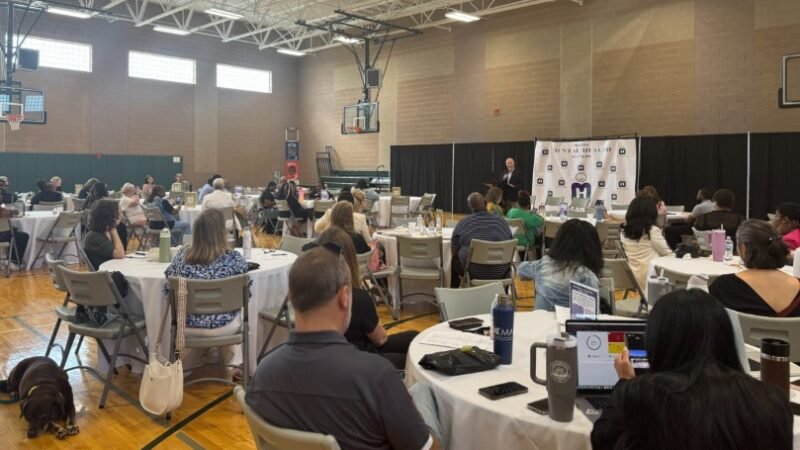Emory Biotech Consulting Club Paving New Paths for Science Enthusiasts

In an era where scientific research often leads to a traditional career in academia, three graduate students at Emory University have found an alternative path through the Emory Biotech Consulting Club (EBCC). Sarah Blumenthal, Dominika Swieboda, and Todd Sherer, initially drawn to scientific research during their graduate studies, discovered a passion for the business side of science through the club.
For Sherer, who completed his PhD 33 years ago, the transition from studying the developing brain to a career outside the lab was unexpected. Blumenthal realized early on in her graduate studies that being a professor might not align with her career goals. Swieboda, on the other hand, was introduced to the possibilities beyond academia through a program called Pathways Beyond the Professoriate during her early years of PhD studies in immunology.
Emory professor of chemistry, Bill Wuest, founded the EBCC four years ago to provide science enthusiasts with hands-on experience in the business side of science. The club collaborates with biotech startups, allowing students to contribute to the development of business plans and strategies.
“The experiences that the students have gone through have been really transformational,” says Wuest. “They’ve started independent ventures in consulting. They’ve started different types of biotech companies.”
Recently, EBCC members gathered for an evening of networking and business discussions. Keynote speaker Todd Sherer, also the director of Emory’s Office of Technology Transfer, highlighted the club’s success in bridging the gap between scientific talent and the biotech industry.
During the event, student teams presented the results of their business analyses. One team focused on a new blood test for Alzheimer’s disease, estimating a $550 million market for tools that can detect the existence of the disease. Another team evaluated a robotic program for laboratory automation, identifying a great pathway into the market due to its customization and flexibility.
EBCC not only provides practical business experience but also aids in interview preparation for jobs outside the lab. Members practice together for job interviews, gaining valuable skills for demanding positions in consulting firms like McKinsey.
While proud of the achievements of EBCC members, Wuest emphasizes the underrated aspects of graduate studies, including learning independence, problem-solving, and critical thinking, which prove beneficial in diverse career paths.






